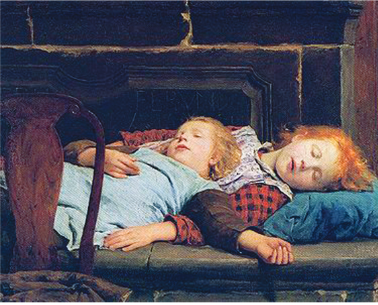
Science is today rediscovering the amazing benefits of quality sleep, including how it builds up our immune system and may help fight against viruses. Here Health Scientist and Sleep Coach Tom Coleman gives us the Science:
Sleep is essential at all ages. Sleep powers the mind, restores the body, strengthens and regulates all systems in the body. Here are some of the most important factors we can control to get a peaceful slumber.
- Sleep Regularity
Trying to stick to a routine when it comes to bed is really important. We should try to go to bed at the same time and get up at the same time. When you stick to a regular sleep schedule, the brain learns to unwind and relax when it’s time to go to bed. - Morning Light
Light plays a key role in regulating circadian rhythm, the body’s internal clock that tells us when we should be awake and when we should sleep. Morning light anchors our circadian rhythm and sets a timer for melatonin release later in the day. It also boosts our “cortisol activation response” which energizes us for the day ahead. - Exercise Regularly
Exercising has all round benefits for health. Both aerobic exercise and resistance exercise can improve sleep quality. Physical activity improves sleep quality, reduces wake episodes and shortens “sleep latency” -the time it takes to get to sleep. Remember that exercise can delay sleep, so ensure you leave about 3 hours between exercise and sleep time. - Nutrition
Nutrition is another fundamental role in our health. It is recommended to avoid large meals and spicy foods prior to bed. There are certain foods like whole grain and proteins both of which contain tryptophan which can increase the sleep hormone ‘melatonin’. - Stimulants and Sedatives Monitoring and limiting your caffeine intake is important. Stimulants like coffee can have a negative impact on your sleep maintenance and quality. Alcohol is a sedative which sends signals to the brain and can also interfere with sleep quality and restoration. You should not drink coffee after 2pm and you should stop drinking alcohol 4 hours before bedtime.
- Be Careful when Napping While lowering sleep pressure can help with exhaustion, it can also make it difficult to fall asleep at night. People who have trouble falling or staying asleep at night should avoid naps. If napping is necessary, it is recommended that the nap length is 20 to 30 minutes and earlier on in the day, to avoid sleep disruption at bedtime.
- Technology Free Bedtime Using electronic devices which give off blue light at night can disturb both the quantity and quality of sleep. This blue light emitted by technology devices impacts the natural production of the sleep hormone, melatonin, and can throw off circadian rhythm. By putting your phone down an hour to 40 minutes before going to bed can help improve sleep quality.
- Temperature
The temperature in your bedroom has a big impact on how well you sleep. The recommended temperature for your bedroom is 18-20 degrees Celsius. In the evening, our bodies are conditioned to feel a small drop in core temperature. Turning the thermostat down at night will help regulate your body’s temperature and signal that it is time to sleep. - Bedroom Environment
Having a good night’s sleep depends on your bedroom environment. Creating a sleep-friendly bedroom atmosphere is an essential aspect of sleep hygiene that will help you get quality rest night after night. A decluttered bedroom with warm and appealing colours with an appealing layout can improve sleep quality. - Unwind the Mind
Sleep problems are often caused by stress and anxiety. The stress response can be turned off by activating relaxation responses such as breathing techniques and visualization exercises, according to studies. By partaking in these it can help calm the mind and help ourselves drift off to natural sleep. Writing or keeping journals can help declutter our mind and help us to destress.



